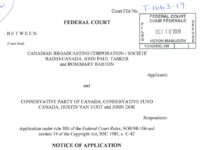Earlier this week, I traveled to Paris to attend the Global Forum on Artificial Intelligence for Humanity (GFIAH). The by-invitation event featured one day of workshops addressing issues such as AI and culture, followed by a two days of panels on developing trustworthy AI, data governance, the future of work, delegating decisions to machines, bias and AI, and future challenges. The event was a part of the French government’s effort to take the lead on developing a new AI regulatory framework that it describes as a “third way”, distinct from the approach to AI in China and the United States. The French initiative, named the Global Partnership on AI, is particularly notable from a Canadian perspective since Canada is an active participant in the initiative and will host the next global forum in 2020.
Blog
Wireless Worsens: Report Finds Canadian Wireless Pricing Now Less Competitive Compared to Other Developed Economies
The cost of wireless services emerged as a political issue during the recent national election, with most parties taking turns promising measures to increase competitiveness and lower consumer costs. The Liberals based their platform on a commitment to reduce costs by 25 per cent over the next two years, a measure that some analysts suggested had already been met. I argued that the 25 per cent reduction target was measuring the wrong thing, noting that “the 25 per cent price decline may sound attractive, but if other countries experience declines of 30 per cent or 40 per cent, it means that Canadians would actually be paying even more relative to consumers elsewhere.”
What Comes Next for Canadian Digital Policy Under a Liberal Minority Government?
In the closing months of the last Liberal majority government mandate, I spoke to a government official about the lessons learned from the prior four years. Their response? If we knew then what we know now, we would have moved much faster on policy. The four years moves very quickly and if you don’t manage to lay the groundwork and introduce proposed legislation within the first 12 – 24 months, it becomes very difficult to enact given competing policy priorities, demands on committee time, Senate review, and a myriad of other challenges.
As I think about what comes next for Canadian digital policy under the new Liberal minority government, those words strike me as more relevant than ever. Even if the government runs more like a majority than a minority (which certainly seems likely on digital policy as no one is forcing an election over privacy or wireless pricing), the same ministers return to their portfolios (which may or may not happen) and the same committee structures return largely unchanged (which will not happen since that INDU chair Dan Ruimy was not re-elected), picking up where the government left off in June will not be easy. Further, the Liberal platform provides the roadmap for future reforms, but moving rapidly on these issues – particularly given expectations that a minority government’s mandate may run shorter than a majority – suggests that quick wins will be preferred to extensive legislative reform.
So what are likely next steps on digital policy?
The CBC Lawsuit, Fair Dealing and Future Reform: The Unexpected Arrival of Copyright in Election 2019
As the 2019 federal election winds toward voting day next week, copyright has unexpectedly arrived on the scene. Cultural groups have lamented for weeks that none of the national political parties have discussed copyright, placed it in their platforms, or otherwise committed to reforms. The likely reason – neatly articulated by OpenMedia’s Laura Tribe in this week’s Lawbytes podcast – is that there are no sharp divisions between the parties on copyright that might provide an electoral advantage. Instead, the government conducted an extensive copyright review which led to the Industry Committee’s June 2019 report. That committee, which heard from hundreds of witnesses representing all perspectives, generated a report that received all-party support and provides a roadmap for future reforms (the notable exception being on crown copyright).
Platforms or People?: The Liberals and Conservatives Outline Competing Visions of Internet Responsibility
In recent years, there has been growing concern worldwide with the privacy risks associated with mass data collection online, the potential for rapid dissemination of hate speech and other harmful content on the Internet, and the competitive challenges posed by technology companies – often labelled “web giants” – that are enormously popular with the public but which do not fit neatly into conventional cultural and economic policies. My Globe and Mail op-ed argues the Internet policy proposals contained in the Liberal and Conservative platforms offer dramatically different answers to the question that sits at the heart of these policy issues: who should bear responsibility for the potential risks that arise from the Internet?











